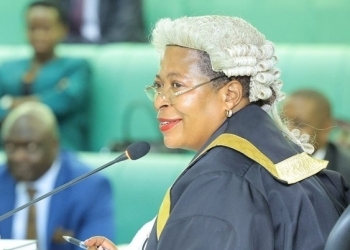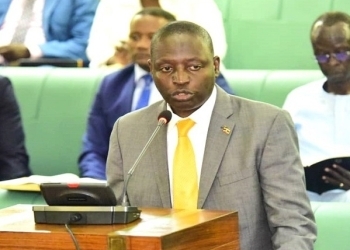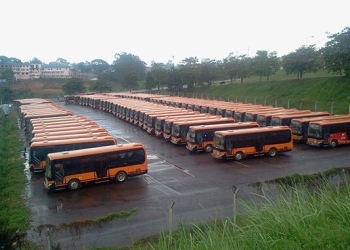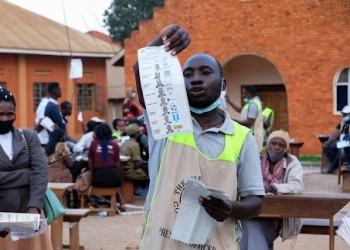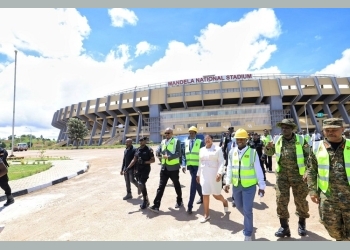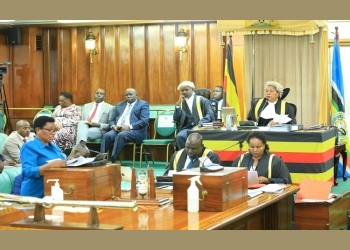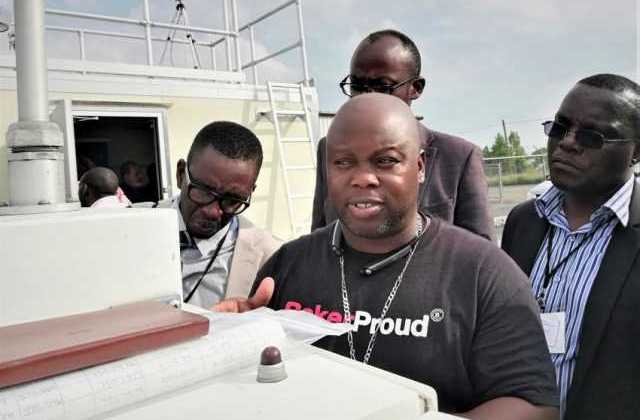
The U.S. Mission Kampala, AirQo of Makerere University, Kampala Capital City Authority (KCCA), and the National Environment Management Authority (NEMA) join the rest of the world to commemorate the 14th annual Air Quality Awareness Week 2020 happening from the 4th - 8th May 2020.
The week-long celebrations will be held under the theme “Better Air, Better Health,” with the aim of raising awareness on air quality and its effect on health.
In recent years, Kampala has been cited to be among the highly polluted cities in Africa with air pollution levels over six times higher than the World Health Organisation’s air quality guidelines. The deteriorating air quality is not only imposing a health burden on the residents but it is also making the city unattractive for visitors and investments,
The Executive Director of KCCA - Eng. Andrew Kitaka, pointed out unpaved roads, vehicle emissions, open burning of waste, industrial activities, and burning of solid biomass for cooking as the main sources of pollution in Kampala city.
Prof. Engineer Bainomugisha, the Project Lead at AirQo noted that the first step in being able to improve air quality is being able to measure it, know the prevailing air pollution levels and concentrations, identifying air pollution sources and its spatial-temporal variations, and generating evidence to inform actions that both policymakers and individuals can take.
However, air quality equipment such as reference-grade monitors are extremely expensive, hence, limiting the scale of air quality monitoring. Without air quality data, it is very difficult to raise awareness of the emerging issues, or for government, business and individuals to know which actions to take to improve air quality and protect community health.

In the past three years, the AirQo project from the College of Computing and Information Sciences, Makerere University has designed and deployed over eighty (80) low-cost air quality monitors across Uganda that are built locally and uniquely designed to withstand the environmental and physical conditions such as dust and extreme weather conditions. The monitors are optimised to work in settings characterised by unreliable power and intermittent internet connectivity, typical in a Sub-Saharan African setting. These monitors have provided a wealth of data that can be used to achieve an impact on air quality.
In 2016, the U.S. Embassy in Kampala installed the first air quality standard monitor in Uganda and has continuously worked with key stakeholders to improve Uganda's air quality.
According to Eng. Andrew Kitaka, in addition to the 25 air quality monitors deployed within the city, KCCA has put in place interventions such as: Improving the road infrastructure by paving of roads to reduce dust with now over 210 KM of roads completed and many more currently under construction, traffic control measures like signalisation of junctions to improve traffic flow and reduce congestion. Non-motorised lanes along all major roads and the pilot non-motorised route on Namirembe road is nearing completion which will reduce air pollution exposure and boost business. Working towards maximising waste collection for safe disposal to reduce household waste burning, greening the city, enforcement of tobacco control act to reduce smoking in public places and also through the Kampala Pollution Task Force, working with industries to adopt cleaner production practices to reduce pollution. ‘'I look forward to seeing that the city attains a bus rapid transport system which will eventually contribute to reduction in traffic and vehicle emissions.’' Eng. Kitaka further stressed.
The Government acknowledges the need to develop stringent regulations to minimize air pollution in order to improve the population’s long-term health.
The National Environment Management Authority has taken lead with the revision of the National Environment Act to address emerging issues of the environment, and they are in the process of developing air quality regulations which are very critical in the control of air pollution from various emission sources. NEMA has also assisted some municipalities to develop ordinances and bylaws aimed at ensuring proper waste management practices as opposed to waste domestic burning. Likewise, the Ministry of Works and Transport developed the Motor Vehicle Inspection Regulations, a statutory instrument for mandatory inspection of vehicles operating in Uganda for over 3 months. This is in addition to restricting fleet age for new imports to a maximum of 15 years from the date of manufacture.
From recent analysis carried out by AirQo and NEMA on the effects of restriction on movement during the COVID-19 lockdown, there was a drop in air pollution by up to 40% for Particulate Matter and more than 60% for NO2. This was largely a result of slow-down in traffic, commercial and other pollution generating activities.
According to Jeniffer Kutesakwe, Senior Environmental Inspector, NEMA, this is a clear indication that the proposed interventions are a step in the right direction and if we moderate our activities, we can move towards achieving clean air for Uganda.
“While these institutional interventions are very important, they cannot succeed without support from the general public. Attaining air quality goals will require collective efforts, and individually, we can all make contributions towards clean air.” Jennifer further stressed.
What can you do as an individual?
- Know your air: Download the AirQo App (iOS) and AirQo App (android) and visit the US-Embassy Website to see real-time air quality levels for your preferred locations.
- Don't pollute - Avoid activities that contribute to poor air quality especially burning rubbish and idling engine in traffic; consider adopting cleaner cooking initiatives, servicing cars in time, and minimising driving and embracing carpooling and non-motorised transportation.
- Protect. Minimise exposure from sources of pollution like smoke, high traffic on main roads, and during peak pollution hours
- Persuade: Join in raising awareness of air quality during air quality awareness week

